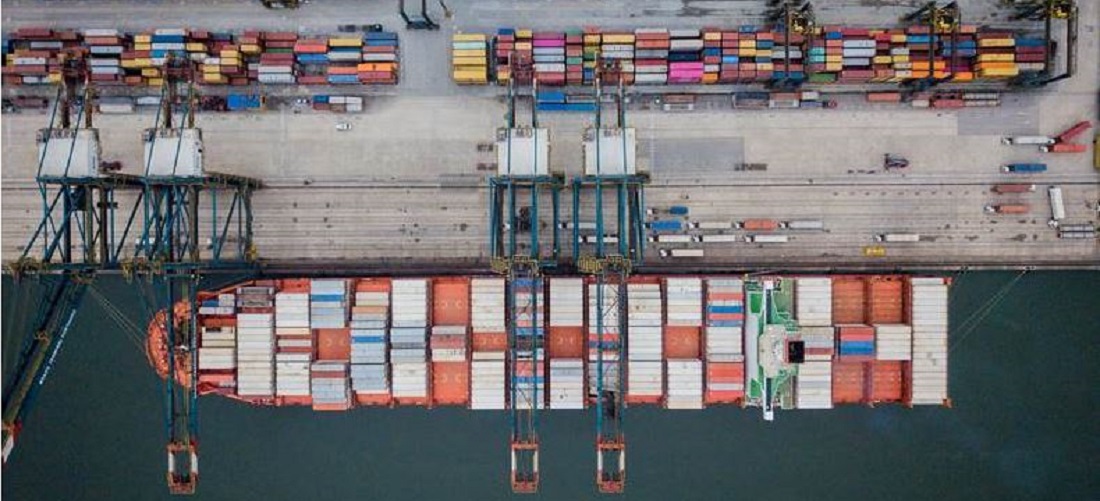
Containership calls at Brazilian ports fell 16.05% in April year-on-year
May, 20, 2022 Posted by Gabriel MalheirosWeek 202220
Containership calls at Brazilian ports dropped 16.05% in April 2022 compared to the same month in 2021, according to statistics collected by Datamar’s Business Intelligence team. In total, there were 528 calls recorded in April compared to 629 calls in April 2021. The Port of Santos, on the other hand, saw a 9.81% drop in its call numbers.
In the first four months of the year, 2,246 stopovers of container ships were recorded vis-a-vis 2,491 stopovers from January to April 2021, a decrease of 9.8%.
See below the track record of containership calls in Brazilian ports from January 2021 to April 2022. Datamar provided the data below:
Containership calls at Brazilian ports per month | Jan 2021 to Apr 2022
Source: DataLiner (click here to request a demo)
You can also compare the number of calls registered in April 2022 and April 20211 by port:
Containership calls in Brazil by port | April 2022 compared to April 2021
Containership calls in Brazil by port | April 2022 compared April 2021
| Brasil | 202204 | 202104 | Diff % | |
|---|---|---|---|---|
| 1 | Santos | 147 | 163 | -9.82% |
| 2 | Paranagua | 56 | 63 | -11.11% |
| 3 | Itapoa | 45 | 43 | 4.65% |
| 4 | Rio De Janeiro | 41 | 46 | -10.87% |
| 5 | Suape | 33 | 40 | -17.50% |
| 6 | Salvador | 28 | 42 | -33.33% |
| 7 | Navegantes | 46 | 45 | 2.22% |
| 8 | Rio Grande | 26 | 36 | -27.78% |
| 9 | Itajai | 18 | 34 | -47.06% |
| 10 | Pecem | 26 | 27 | -3.70% |
Source: DataLiner (click here to request a demo)
According to Flávia Takafashi, the National Waterway Transportation Agency director, the decreased number of vessel calls reflects the number of ships that transport products in and out of Brazil being delayed. This problem is caused by the long vessel queues at major international ports. “Ship delays are a problem that started with the lack of containers, which is no longer so relevant for the Brazilian market,” emphasizes the director, explaining that, even though Brazil registered a lack of metallic receptacles, the phenomenon was less intense here than in other countries.
With port omissions increasing, the loads that should be shipped are not at all transported. “They then stay stored until the next time the ship calls. However, there is always the risk of the port being omitted again, given how recurrent the problem has become,” she says, commenting that this situation leads to cargo accumulation, hampering the receipt of new products.
Luiz Fernando Garcia, the CEO of Portos do Paraná, explained that blank sailings have been occurring since last year. According to him, the Port Terminal of Paranaguá (TCP), the main container terminal in the state, recorded 131 blank sailings in 2021, almost one every three days. The number is nearly ten times higher than the average of omissions between 2017 and 2019 and four times higher than the previous year.
To avoid further inconveniences, Antaq created, in October 2021, a working group to evaluate issues related to the handling of containers in Brazilian ports. The idea is to push for greater operational predictability from shipowners. Another measure taken was to change the agency’s tracking system so that omissions, from January 2022 onwards, have to be adequately informed and computed into Antaq’s database to have greater control.
With information from A Tribuna and Agência Infra.
-
Ports and Terminals
Apr, 06, 2023
0
Port of Santos sees all-time throughput record for March
-
Sugar and Ethanol
Oct, 25, 2022
0
Brazil sugar output jumps in early October but rains still a drag
-
Other Logistics
Mar, 14, 2023
0
Antaq: Brazilian ports see over 87.2 mln tonnes of cargo in January
-
Shipping
Oct, 05, 2023
0
Authorities set public consultation period for Port of Paranagua access concession

